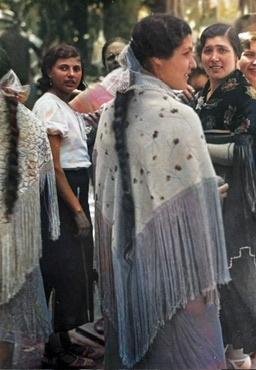Why is it important to maintain the enconar process when using traditional Mallorcan pans?
Similar Topics
enconar process
mallorcan pans
traditional cookware
natural non-stick
pan seasoning
culinary tradition
sustainable cooking
mallorcan heritage
Maintaining the enconar process when using traditional Mallorcan pans is crucial for preserving both the functionality and cultural significance of these cookware pieces. Enconar, a technique that involves seasoning the pan with specific oils and controlled heating until a dark, protective patina forms, serves to create a natural non-stick surface. This layer not only improves cooking performance by preventing food from sticking but also enhances the flavor development of dishes by allowing a controlled interaction between the metal and ingredients. Without this careful maintenance, the pans can quickly rust or develop uneven surfaces that impede their use and longevity.
Beyond the practical benefits, the enconar process also embodies a connection to Mallorcan heritage and culinary tradition. These pans are typically made of iron and without modern coatings, making them durable and invaluable to local cooks who rely on centuries-old methods. By regularly performing the enconar ritual, users uphold a hands-on relationship with their cookware that mirrors ancestral practices. This respect for tradition ensures that the pans remain optimal tools for preparing regional specialties, such as tumbet or frit mallorquí, where the flavor and texture depend heavily on the quality of the cookware.
Furthermore, maintaining the enconar process fosters sustainability and economy. Instead of frequently replacing pans, careful seasoning and upkeep extend their lifespan, reducing waste and cost. This aspect aligns with Mallorca’s increasing focus on environmentally conscious tourism and support of local artisans. Ultimately, the enconar process is more than a technical requirement; it is an integral part of preserving an authentic culinary experience and honoring the island’s rich gastronomy.
Beyond the practical benefits, the enconar process also embodies a connection to Mallorcan heritage and culinary tradition. These pans are typically made of iron and without modern coatings, making them durable and invaluable to local cooks who rely on centuries-old methods. By regularly performing the enconar ritual, users uphold a hands-on relationship with their cookware that mirrors ancestral practices. This respect for tradition ensures that the pans remain optimal tools for preparing regional specialties, such as tumbet or frit mallorquí, where the flavor and texture depend heavily on the quality of the cookware.
Furthermore, maintaining the enconar process fosters sustainability and economy. Instead of frequently replacing pans, careful seasoning and upkeep extend their lifespan, reducing waste and cost. This aspect aligns with Mallorca’s increasing focus on environmentally conscious tourism and support of local artisans. Ultimately, the enconar process is more than a technical requirement; it is an integral part of preserving an authentic culinary experience and honoring the island’s rich gastronomy.
